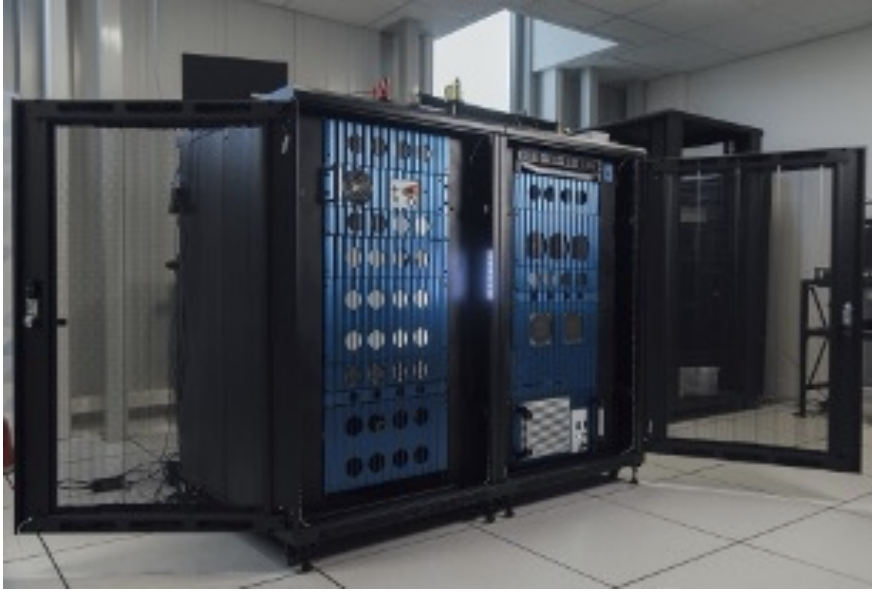Quandela And Attocube Systems AG Selected to Provide Europe’s Photonic Quantum Computer

Insider Brief
- Quandela and attocube systems AG have been selected by EuroHPC and EuroQCS-France to deliver Europe’s most powerful photonic quantum computer, named “Lucy,” with an initial capacity of 12 qubits, set to double by 2026.
- The “Lucy” system will be hosted by CEA at the TGCC, connected to the Joliot-Curie supercomputer, and made available in 2025 to serve the scientific, academic, and industrial research communities across Europe.
- This collaboration between Quandela and attocube systems marks a major step in advancing quantum computing technologies, with a compact design and energy-efficient operation, showcasing Europe’s growing role in quantum innovation.
PRESS RELEASE — Quandela and attocube systems AG have announced that they have been selected by the EuroHPC Joint Undertaking and EuroQCS-France to deliver the most powerful universal photonic quantum computer in Europe, with at least 12 qubits. This system, owned by EuroHPC and co-acquired by GENCI, will be hosted and operated by the CEA at the TGCC. It will be connected to the Joliot-Curie supercomputer and made available in 2025 for the scientific community in the context of open research.
This hybrid HPC-Quantum platform will be available to serve the needs of open, academic, and industrial research in France and Europe. As part of the EuroQCS-France consortium, partners ICHEC (Ireland), FZJ (Germany), and UPB (Romania) have already identified use cases that could be addressed by this photonic technology.
Lucy: A Cutting-Edge Photonic Quantum Computer for Scientific Excellence
The selected name for the photonic quantum computer is “Lucy.” It represents cutting-edge innovation in photonics, both on a European and global scale. Photonic quantum computers offer unprecedented research avenues in quantum computing. Quandela’s approach involves emitting single photons, which are guided via optical fibers to a chip where they interfere to perform computations. The results are measured at the chip’s output using detectors.
Photo Credits: ©Agence Oblique/Cyril Marcilhacy
With an initial capacity of 12 qubits, which will double by 2026, Lucy’s specific architecture will enable the resolution of existing problems and the discovery of new use cases. Already identified use cases that could benefit from Lucy’s HPC-Quantum coupling include electromagnetic simulation, structural mechanics, combustion in engines, material simulation, meteorology, and Earth observation.
Like all quantum computers acquired by EuroHPC, Lucy will be available to a wide range of users in the scientific, industrial, and public sectors across Europe. To allow communities to prepare for the use of photonic quantum computing paradigms before the system arrives at the TGCC in 2025, the consortium will offer remote access to a 6-qubit Quandela system by late 2024.
Niccolo Somaschi, co-founder and CEO of Quandela, and Peter Kraemer, CEO of attocube systems AG, said:
“Quandela and attocube systems AG, two pioneering European technology companies, have joined forces to present MOSAIQ-12, a cutting-edge 12-qubit photonic quantum computer. This revolutionary system integrates Quandela’s advanced qubit generator with attocube’s compact cryogenic system (attoCMC), alongside proprietary photon demultiplexing technology, a sophisticated 24-mode photonic chip, high-precision single-photon detectors, and a complete electronic and software control stack. MOSAIQ-12 represents a significant step forward in quantum computing, with a remarkably compact footprint of just 2 square meters and energy-efficient operation under 5 kW. This achievement underscores the partners’ commitment to user-centric design and environmental responsibility.”
To ensure a smooth transition, Quandela will provide remote access to a similar photonic quantum computing system from contract signing until the system’s delivery. This collaboration between Quandela and attocube exemplifies the successful transition of quantum technology from theoretical research to practical, real-world applications, marking a major milestone in the commercialization of quantum computing.”
“Following the commissioning of a first neutral atom system, co-acquired by EuroHPC and GENCI, the installation of Lucy, Quandela’s new photonic QPU at TGCC, marks another significant step in French and European quantum computing strategies. We are proud to provide HPC users across France and Europe with such innovative European quantum computing technologies! This installation signals the key role that quantum systems will play in the future of hybrid high-performance computing,” said Jacques-Charles Lafoucrière, Director of the High-Performance Computing Program at CEA and Coordinator of HQI.
